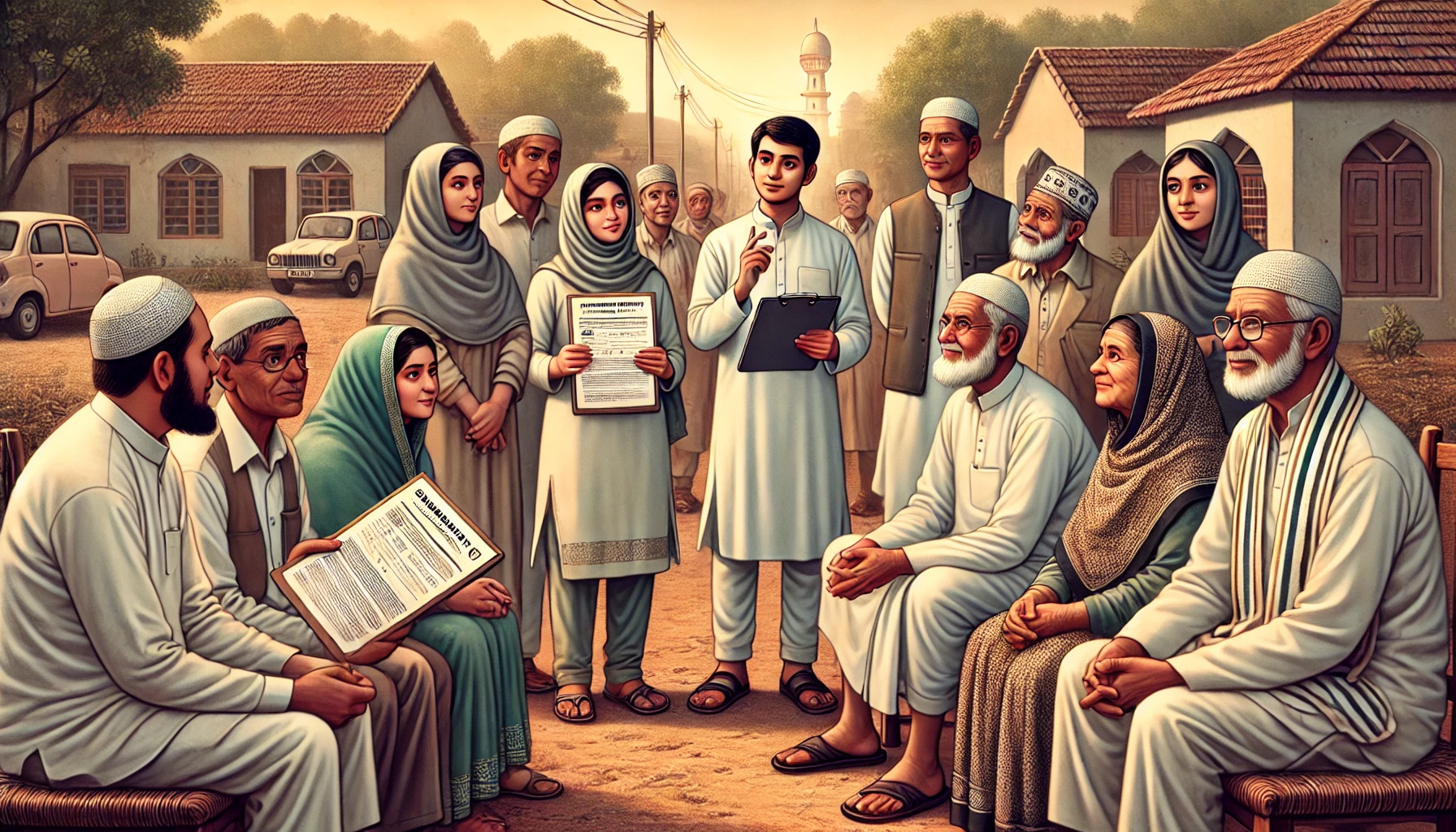Telangana’s recent household survey has sparked concerns among Muslim communities about potential misuse of collected data. Community leaders are calling for transparency in data handling, voicing fears over security and privacy. They demand safeguards to prevent profiling and discrimination, urging authorities to reassure the public with clearer policies and protections.
The caste-based survey initiated by the Telangana government has sparked concerns, especially within the Muslim community. The survey seeks to assess social, economical, political, caste and educational status of households across the State.
Doubts are widespread regarding the extensive range of personal information sought in the survey, with many wondering about the government’s intentions and the future security of the collected data. Apprehensions revolve around whether the information might eventually be misused or exploited against specific groups.
A gathering of ulema and imams from various mosques in the twin cities took place on Friday night, with representatives from NGOs and the legal community joining the discussions led by Maulana Shah Jamalur Rahman. The meeting underscored the community’s desire for greater clarity on the survey’s purpose and security measures. It was decided to seek an audience with Chief Minister A. Revanth Reddy to address these concerns.
Mufti Ghyasuddin Rahmani highlighted the unease surrounding the socio economic survey form’s 75 questions probing personal details, particularly noting that the survey forms are in Telugu, a language many in the Muslim community may not fully understand. He suggested that the survey forms also be made available in English and Urdu languages to ensure clarity and accessibility.
Furthermore, some religious leaders voiced fears that the information could potentially feed into NRC (National Register of Citizens) or CAA (Citizenship Amendment Act) processes. They emphasized that collecting details under the Census Act could offer legal safeguards against data misuse, helping to alleviate the community’s apprehensions.
The Telangana government’s household survey seeks information in two primary categories: personal details of family members and family-related data. Enumerators are gathering a wide range of personal information, including the names of household members, their relationships, ages, religion, mother tongue, marital status, property details, disability status, Aadhaar numbers, annual income, and business turnover. Additionally, the survey is reportedly asking for bank account numbers, a requirement that has raised significant concerns among the public.
Despite government assurances that all data will remain confidential, many remain skeptical. Worries persist that such sensitive information, if mishandled, could lead to privacy risks or even misuse in the future. The depth and range of information being requested have prompted several community leaders and citizens to seek clarity and transparency regarding the survey’s purpose and security measures.
Another major concern surrounding the Telangana government’s socio-economic survey is the process by which enumerators record data using code numbers. There is a fear that errors may arise due to this method, potentially leading to inaccurate or incorrect entries. Most of the enumerators assigned to the survey are Telugu-speaking ASHA workers and teachers who may not be familiar with certain names, particularly those common within the Muslim community. This unfamiliarity raises the risk of spelling mistakes or other inaccuracies in the data collection process.
Given these concerns, community leaders have suggested that the government consider an alternative option, such as allowing people to submit their survey responses online. This approach would not only reduce the chances of entry errors but would also give individuals more control over the accuracy of the information they provide.
The meeting also raised concerns over the survey’s timeframe, noting that the current three-week window for completion may be too short for such an extensive task. Participants feared that this tight deadline might pressure enumerators to rush through the process, potentially compromising the accuracy of the collected data. Extending the timeline would allow a more careful and thorough collection of information, they suggested.
To safeguard against possible alterations, many in the meeting advised that individuals should take photographs of the filled survey forms as proof of the recorded information. Additionally, they recommended that enumerators be instructed to use pens instead of pencils, to prevent any unrecorded changes.
Emphasizing the survey’s importance, advocate Mohammed Abdul Shakeel urged the Muslim community to participate fully and provide accurate information. He highlighted the need to be especially mindful of caste and community classifications, as different Muslim sub-groups fall under various Backward Classes (BC) categories. Awareness of this classification is crucial to ensure accurate representation and access to relevant resources.
The meeting also addressed concerns about the contentious Wakf Amendment Bill 2024, voicing strong opposition to its provisions. It was decided to organize a large public gathering in Kadapa ahead of Parliament’s winter session to build public pressure against the Bill. It is proposed to invite Andhra Pradesh Chief Minister N. Chandrababu Naidu to this gathering, urging him to oppose the Bill, which many believe undermines the interests of the Muslim community.
Naidu’s Telugu Desam Party is a key partner of the BJP-led NDA government at the Centre and its support is crucial for passing the Bill in the Parliament.
To ensure a significant turnout, volunteers have been asked to mobilize people for this event. The proposed public meeting is intended to send a clear message to the government regarding the community’s concerns and demand that the Bill be reconsidered. #hydkhabar

